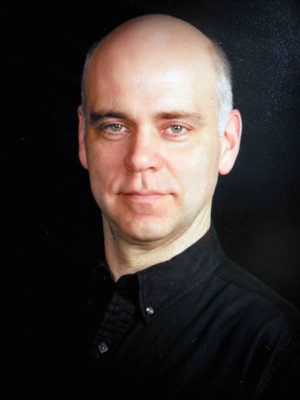
This event is part of our Further Reflection series
4-parts on Wednesday Evenings
March 24, 31 April 7 & 14
8:00 – 9:30 pm EST/ 5:00 – 6:30 pm PST
What can the human sciences tell us about how religion came to be so prominent in human life? Social psychology suggests that religion builds on many traits that were crucial in forming our species. However religion among our ancestors bore little resemblance to organized religion today, and spirits had little to do with morality.
This four-part course will discuss evidence from anthropology, archeology, history about how religions started and evolved. We’ll start with religious practices and beliefs among hunter-gatherers, who resemble our Stone Age ancestors. Archeology suggests that some religious practices go back ten thousand years or more. Moralizing religions emerged in early large-scale farming societies; the leading hypothesis is that such religions enabled cooperation in large groups. We’ll discuss the evidence for this hypothesis; then we’ll consider how priests and kings coopted religion to assert their own authority, leading to the Bronze Age religions. The coming of iron technology during the first millennium BC catalyzed social upheaval across Eurasia, and many reformers sought to adapt religion to the needs of their societies in ways that seem often humanistic. Some of these reform movements grew into the dominant modern religions of today. We’ll discuss how Judaism, Buddhism, Hinduism, Christianity, Confucianism, and Islam started in the turmoil of invasions or imploding societies and came to set the tone for how most human beings have thought about their lives for 2,500 years.
Classes will consist of a brief presentation followed by a discussion based partly on online readings, which will be provided in advance.
_________________
 Dr. Mark Reimers works as a computational neuroscientist: he studies brain function by applying statistical methods to look for patterns in large-scale recordings of brain activity and behavior. He applies these methods to understand normal memory function and shed light on mental illness. Dr. Reimers has worked at the US National Institutes of Health, the Karolinska Institute in Stockholm, and at the Virginia Institute for Psychiatric and Behavioral Genetics in Richmond, and now does research and teaches at Michigan State University. His broader aim is to ground our understanding of the mind in the facts of biology.
Dr. Mark Reimers works as a computational neuroscientist: he studies brain function by applying statistical methods to look for patterns in large-scale recordings of brain activity and behavior. He applies these methods to understand normal memory function and shed light on mental illness. Dr. Reimers has worked at the US National Institutes of Health, the Karolinska Institute in Stockholm, and at the Virginia Institute for Psychiatric and Behavioral Genetics in Richmond, and now does research and teaches at Michigan State University. His broader aim is to ground our understanding of the mind in the facts of biology.
Dr. Reimers was the leader of the Richmond Humanists in Virginia for five years, and now leads the UU Forum in Lansing, and speaks frequently at humanist and science outreach events in Michigan.

